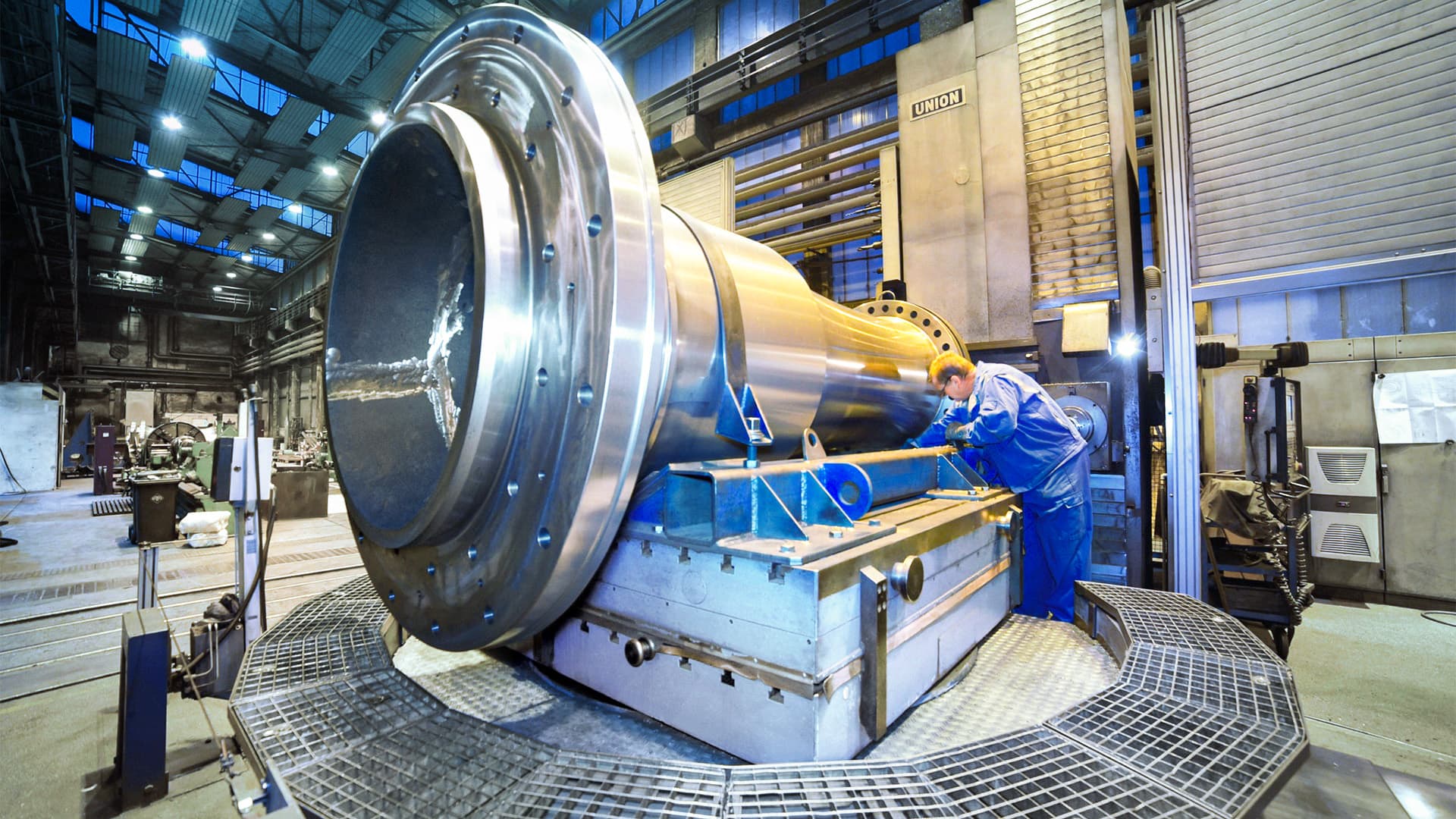Technology
Research and development
Advance through research
Innovation has a long tradition at COSWIG GUSS. For decades, we have been setting new standards in the casting of rolls and special components. We have been driving the development of modern technologies and methods with our own research department since 2000. In doing so, we always keep an eye on practical feasibility and the benefits for our customers.
Our development work is currently focusing on concepts to further increase mileage and wear resistance. One example is ceramic-metal casting composites, which redefine the limits of resilience and durability. COSWIG GUSS thinks in interdisciplinary and international terms. In close cooperation with renowned universities and research institutes such as the IKTS Fraunhofer Institute, the TU Bergakademie Freiberg and the TU Dresden, our engineers develop holistic solutions for the casting of the future.
Production
Technology in top form
Maximum precision in technical production is the basis for optimum functioning of rolls and special components. COSWIG GUSS therefore constantly invests in the qualification of its employees and the modernization of its machinery.
With CNC machining centers, Hercules lathes and laser measuring technology, we set standards in the precision and processing quality of our cast products. In this way, we guarantee our customers that the predicted performance potential is also exploited in reality. Production takes place in two independent production lines with an annual capacity of 40,000 tons. This makes COSWIG GUSS particularly flexible and equipped for any challenge.
Foundry
Moulding and hand moulding
Foundry I
-
approx. 600 moulds Sizes: up to Ø 2,300 mm
-
1 Si- Cr- mould sand mixer Capacity: up to max. 32 t/h
Foundry II
-
approx. 800 mould boxes
-
Core dimensions upright: 3,000 x 3,000 x 5,000 mm
-
Horizontal core dimensions: 5,000 x 5,000 x 2,500 mm
-
2 Si- Cr moulding sand mixers Capacity: up to max. 30 t/h Core shop
-
Moulding sand mixing plant 2 plants with max. 15 t/h
Melting store
Foundry I
-
4 MF induction furnaces 4 t, 2 x 8 t and 23 t
Foundry II
-
4 MF induction furnaces 2 x 8 t and 2 x 18.8 t
Annealing range
Foundry I
-
15 annealing chambers for normalizing, stress-relief annealing and tempering
-
up to 150 t load and temperatures up to max. 1,200°C
Lathe shop
Lathe shop
-
2 pre-turning machines CNC max. Ø 1,380 mm, up to length 9,500 mm
-
6 CNC lathes including 1 machine for milling and drilling max. Ø 2,400 mm, up to length 8,000 mm
-
2 roll neck milling machines CNC max. Ø 1,400 mm, up to length 8,000 mm
-
External cylindrical grinding machine CNC max. Ø 1,600 mm, up to length 8,000 mm
-
3 vertical lathes CNC max. Ø 3,450 mm, up to length 2,500 mm
-
3 boring mills CNC max. 3,850 mm (vert.) x 6,000 mm (horiz.) x 1,600 mm
-
Bandsaw in gantry design up to 40 t max. Ø 1,800 mm, up to length 8,000 mm
-
Shrinking station for shrinking rolling rings max. Ø 1,650 mm, up to a height of 1,500 mm
Quality management
Technology and analysis methods in the test laboratory
-
Optical emission spectrometer
-
Carbon-sulphur machine
-
Universal tension-compression bending machine for determining mechanical strength
-
Pendulum impact tester for determining the impact energy
-
Laboratory annealing furnace for trial heat treatments
-
Sand laboratory for determining foundry sand parameters
-
Metallographic laboratory incl. microhardness testing
-
Target/actual check of all dimensions
-
3D measurement by laser tracker
Equipment and tests in the production departments
-
Optical emission spectrometer
-
Ultrasonic and magnetic particle testing
Archiving
-
Electronic data and image archiving
-
Retained samples
